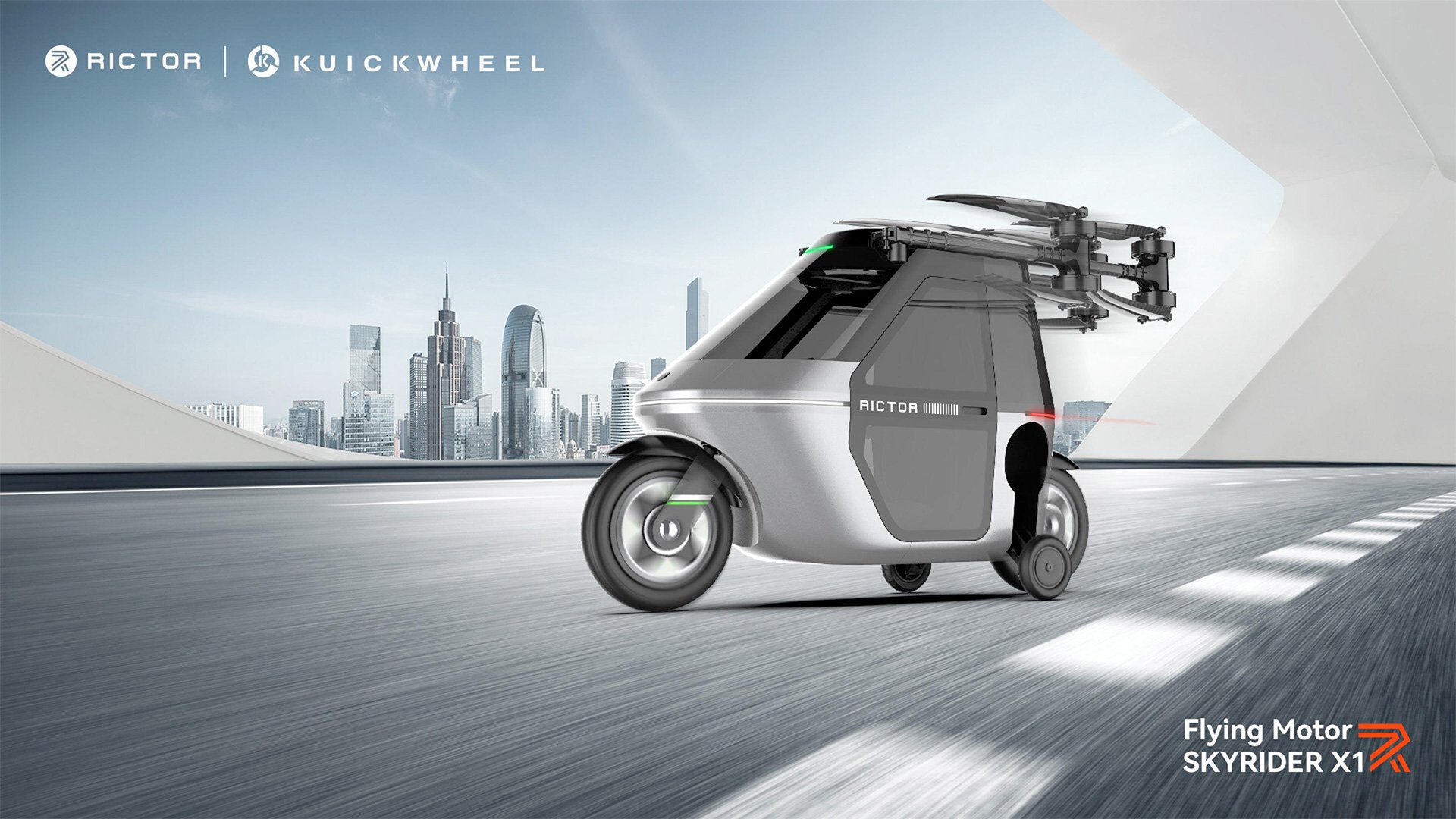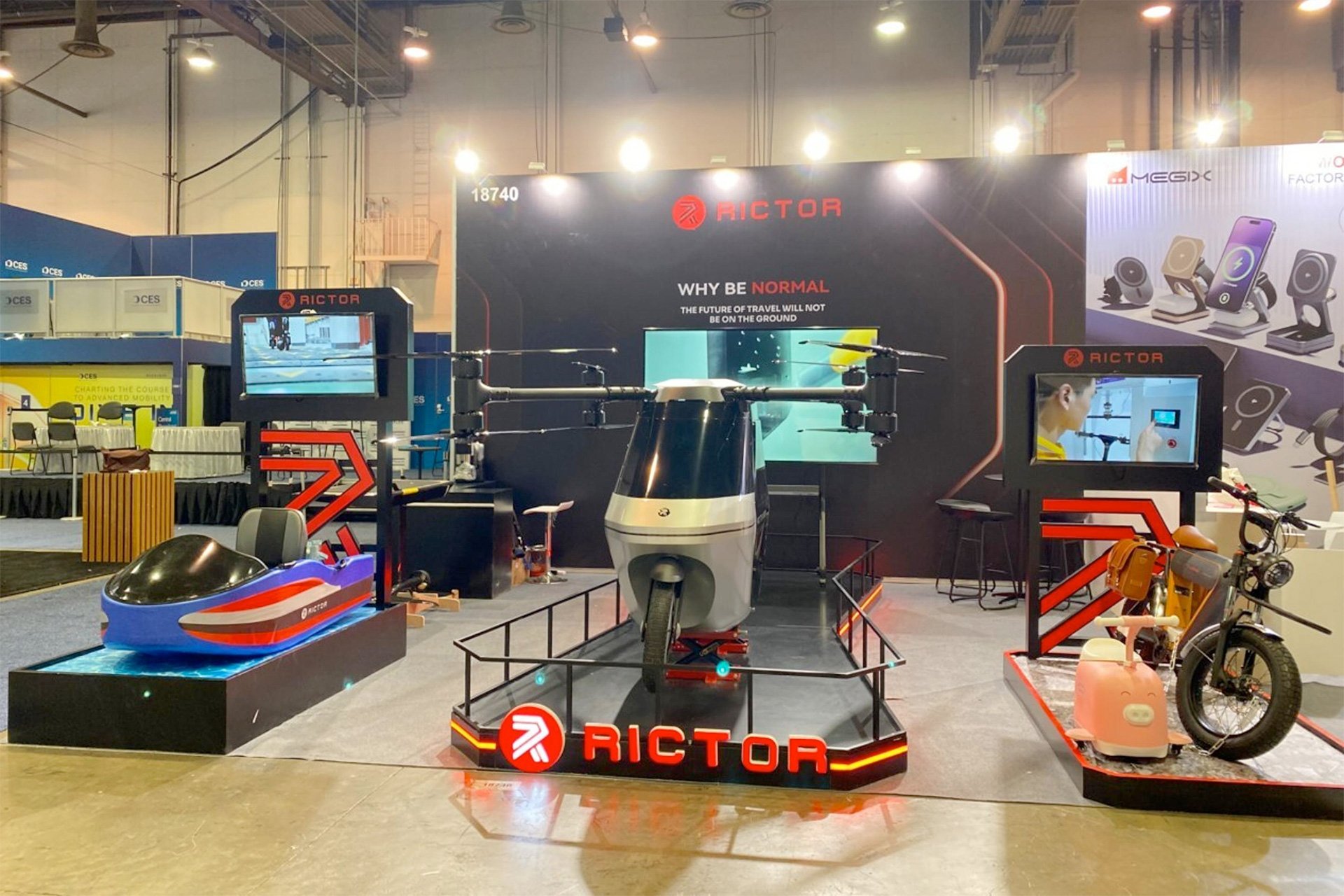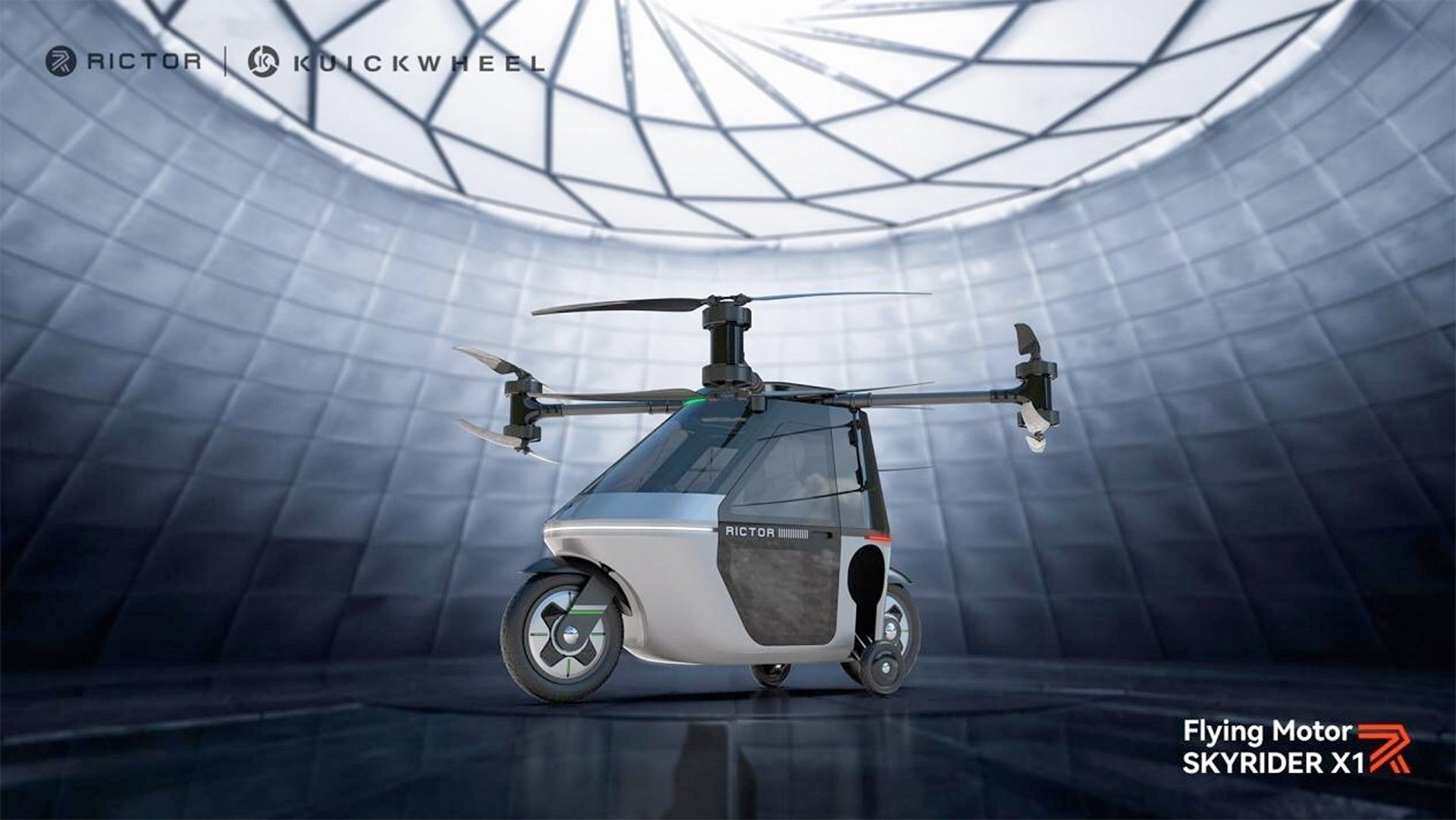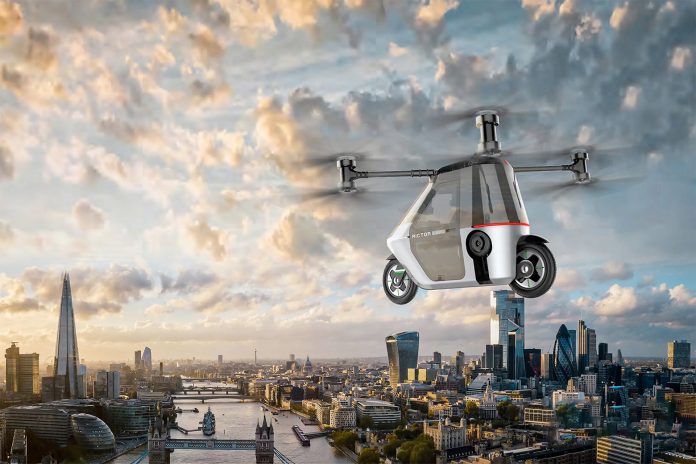The concept of flying motorcycles has long been a staple of science fiction, but Rictor, a sub-brand of Chinese company Kuickwheel, has taken a step toward making it a reality. The Skyrider X1, unveiled at CES in Las Vegas, is described as the “world’s first amphibious flying passenger motorcycle.” While the term “amphibious” seems to be misused in this context, the vehicle does promise both ground and air mobility with autonomous flight capabilities.
Design and features
The Skyrider X1 is designed to function both as a street-legal electric moped and a personal eVTOL (electric vertical take-off and landing) aircraft. On the ground, it features a standard motorcycle form factor, supplemented by automated outrigger training wheels for stability. In flight mode, four fold-out arms extend to reveal eight coaxial propellers, enabling vertical take-off and mid-air maneuverability.
To ensure a balance between weight and durability, Rictor has built the Skyrider X1 using carbon fiber composites and aviation-grade aluminum. These materials help keep the vehicle light enough for flight while maintaining the strength necessary for ground travel.
Performance specifications
Rictor states that the Skyrider X1 can reach a maximum flight speed of 62 mph (100 km/h). Flight endurance depends on the battery capacity, which varies between two models:
- X1 SL (Standard Model): Equipped with a 10.5-kWh battery, this version claims a flight duration of 25 minutes.
- X1 SX (Extended Range Model): Featuring a 21-kWh battery, this version is advertised to last up to 40 minutes in the air.

These flight duration estimates may be optimistic, given that the vehicle must generate continuous lift. However, Rictor has included “triple-redundant flight control systems, ensuring safe operation even if an engine fails.” Additionally, the Skyrider X1 comes with an integrated emergency parachute.
Automation and safety features
One of the standout features of the Skyrider X1 is its autonomous functionality. Automatic route planning helps users identify optimal flight paths, and “real-time weather and environmental adaptability” ensures adjustments to altitude, speed, and flight direction for more efficient travel.
The vehicle also supports automated take-off and landing, requiring the rider to only set the destination while the onboard systems handle navigation. For those who prefer manual operation, a joystick provides direct control.

Market prospects and challenges
Rictor has not yet provided detailed information on certifications, working prototypes, or real-world flight tests. While the company has previously launched only one product—a conventional e-bike—the transition to an autonomous flying motorcycle represents a significant leap.
Despite these uncertainties, reports suggest that the Skyrider X1 could enter the market as early as next year, with an estimated price tag of $60,000.

Final thoughts
The Skyrider X1 presents an intriguing vision for personal aerial mobility. However, given the technical and regulatory challenges associated with eVTOL development, questions remain about its feasibility. If Rictor can successfully navigate these hurdles and demonstrate a viable working model, the Skyrider X1 could represent an innovative addition to the emerging urban air mobility sector. Until further details on certification and testing emerge, potential buyers and industry observers may want to remain cautious about its prospects.
Source: Rictor



